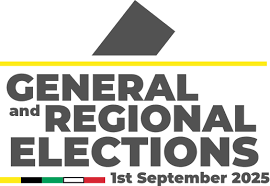
Introduction
The upcoming Guyana election in 2025 is poised to be a pivotal moment in the nation’s political landscape. With its recent history of political upheavals and economic developments, the elections will play a crucial role in determining the direction of the country. As Guyana emerges as a significant player in the energy sector, the outcomes of this election could have far-reaching implications for governance, infrastructure development, and social unity.
The Political Context
Guyana has experienced significant changes in its political situation, especially following the 2020 elections, which saw a contentious period filled with allegations of electoral fraud and legal battles. The People’s Progressive Party (PPP) emerged victoriously, led by President Irfaan Ali, entering an administration that promised economic growth fueled by newfound oil revenues. However, challenges persist as the opposition coalition, A Partnership for National Unity + Alliance for Change (APNU+AFC), continues to push for electoral reforms and greater transparency.
Key Issues Leading Up to the Elections
As the nation gears up for the 2025 elections, several key issues have come to the forefront.
- Economic Development: The discovery of vast oil reserves in recent years has shifted Guyana’s economic landscape. The management of oil revenues, investment in infrastructure, and the distribution of wealth are critical topics for voters.
- Social Issues: Inequality and healthcare access continue to be significant issues, with many citizens advocating for reforms to improve living conditions and access to services.
- Environmental Concerns: The oil industry poses environmental challenges, prompting discussions about sustainable practices and the impact on Guyana’s rich biodiversity.
Additionally, youth engagement and participation in the electoral process are becoming increasingly vital, with many young voters advocating for change and representation.
Candidates and Their Campaigns
As of now, key political figures are emerging as potential candidates for the 2025 election. President Irfaan Ali is expected to run for re-election under the PPP, focusing on continuity and development. Meanwhile, the opposition is likely to rally around a strong candidate to challenge Ali, aiming to capitalize on any existing dissatisfaction among voters regarding the government’s performance.
Conclusion
The Guyana election in 2025 is set to be a defining moment in the country’s future. With citizens becoming increasingly politically aware, the election outcomes will reflect the population’s desires for economic prosperity, social equity, and environmental responsibility. As election day approaches, active voter engagement will be essential for a healthy democracy, and the results will signal the direction Guyana is heading in this transformative era.



